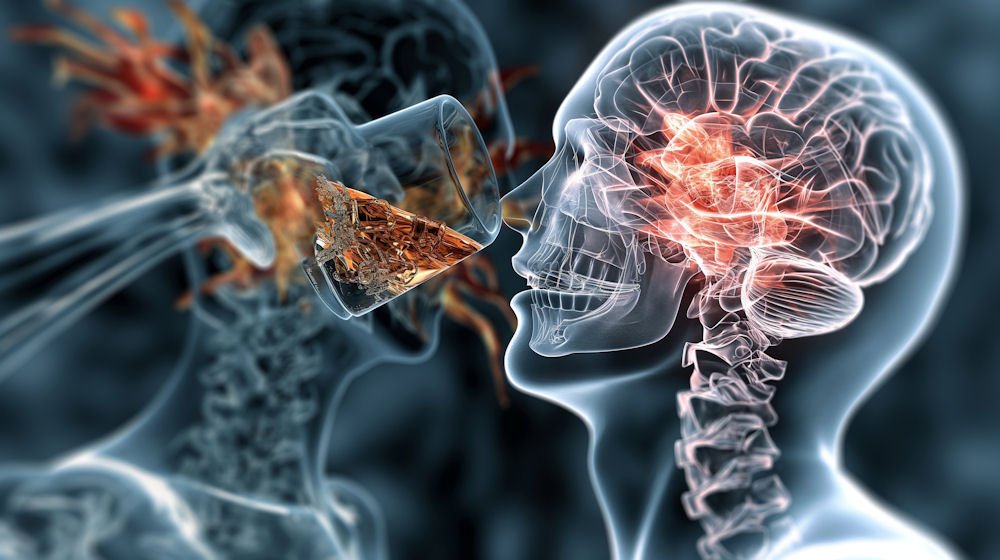It’s a problem when any portion of the brain shrinks. However, the damage done by alcohol is particularly worrying because some of that shrinkage probably comes from cell death. Once brain cells die, the effects are permanent. Fortunately, some of the changes in an alcoholic brain are simply due to brain cells changing size.
Research has shown that the brain can repair itself relatively quickly after ceasing to drink alcohol. The brain’s gray matter shrinks from alcohol abuse, but it begins reversing the damage within two weeks after chronic alcohol abusers stop drinking. When a person with alcohol use disorder (alcoholism) stops drinking, their brain cells return to their normal size. This shows that some alcohol-related brain damage can be reversed.

The timeline for alcohol recovery can be somewhat quick in certain areas, while different areas of the brain recover at different rates. Studies have shown that a lot of the lost functionality in the brain returns quickly. New research reveals that it takes at least 2 weeks for the brain to begin returning to normal, so this is typically the point where the alcohol recovery timeline starts.
You may still be going through some withdrawal symptoms, which makes this period high risk for relapsing. You may feel confused, distracted, and irritable.
That being said, it may take anywhere from a couple of months to several years before you realize cognitive improvements and added cognitive abilities. During this time, you might still have problems with abstract reasoning, short-term memory and visual-spatial ability.
Long-term alcohol use can damage the brain in these ways:

Alcohol use also has some notable short-term effects on the brain including:
Because alcohol mainly affects the frontal lobe which is linked to higher-level thinking, it can lead to poor judgment and impulsive behavior.
Drinking harms the brain’s ability to form new memories, causing “blackouts.”
Alcohol impacts the cerebellum, which is responsible for balance and coordination, causing difficulting walking and clumsiness.
Alcohol can lead to quick mood changes, which may lead to aggression or emotional instability.
Reaction time is slowed down due to impaired brain function when under the influence of alcohol.
Neuroplasticity is the brain’s ability to change its functions and physical structure based on life experiences and repeated thoughts, behaviors, and emotions. Whether it’s good or bad, whatever you do repeatedly is wired into your brain’s structure. That’s why it’s difficult to change a habit or routine.
But new habits can be formed, and neuroplasticity is what makes it possible for people to change behaviors and adapt to changes forced on them. Still, the brain can’t recognize the difference between good or bad experiences or habits. Since the brain learns repeated habits, it can result in development of an addiction.
AUD recovery focuses on changing or replacing the harmful habit of using alcohol with positive, healthy habits. When an individual in recovery develops a positive new habit, the brain changes. It creates a neural (central nervous system) pathway reinforcing the new habit. As the new habit is repeated, the new pathway gets stronger through neuroplasticity while the pathways of the negative habits become weaker since they are no longer being reinforced.
Even after long-term alcohol use, the process of neuroplasticity can help the brain heal itself. This can begin during medical detox, the first step in recovery. The time it takes for the brain to heal itself depends on:
Neurotransmitters are chemicals in the brain that allow neurons in the brain to communicate with each other and are involved in almost every part of everyday life:
When they are disrupted by alcohol they can become blocked or overstimulated so they can’t address normal daily functions. The reward system is designed to strengthen positive experiences (eating, socializing, and sex), so you’ll want to do them more often.
The brain releases dopamine–the “feel good” hormone–every time you have a positive experience so you’ll remember it and repeat it to form a habit. Chronic alcohol usage can alter the function and structure of the brain. This basically hijacks the brain’s reward system and motivates the transition from being an occasional drinker to being dependent on it.
Our brains have a remarkable ability to adapt and repair, even after prolonged AUD. The brain continues to build brain cells and neural pathways , and its ability to adapt allows it to modify, grow and reorganize itself after addiction. But, it takes some time for the brain to repair itself.
The brain needs to be free from the alcohol, or the amount needs to have been drastically reduced. There are many treatment options to help people stop or cut back. Withdrawing or detoxing from alcohol can take a few days to a few weeks depending on:
You can do a lot to help your brain and body recover and improve neuroplasticity and brain health through:
This increases the size of the hippocampus
Mindful meditation can strengthen brain circuits damaged by AUD
This helps to compensate for the vitamin and mineral deficiencies that usually happen with AUD
The brain flushes out toxins while you sleep so good sleep habits can help brain recovery

If you or someone you care about is struggling with AUD, there is help available at Golden Gate Recovery in Marin County, CA. We are a gender-specific treatment facility created by men in long-term recovery for men who need support and comprehensive treatment for alcohol use disorder, or any addiction.
We are set up to design individualized care for each client and an appropriate continuum of care. Our facility can offer you:
Golden Gate has 3 outpatient programs ranging in duration and intensity.
Golden Gate Recovery is has licensed and experienced clinicians and addiction specialists whose only job is to help you recover. Contact us today. Find out why we have the Gold Seal of Approval from The Joint Commission, a non-profit organization that accredits healthcare organizations.
Get confidential help! Call Us Now for:

Golden Gate Recovery is a grass roots organization created by men in long term recovery with a simple mission: to continue strengthening our therapeutic and peer led community toward the goal of long term recovery for each client.